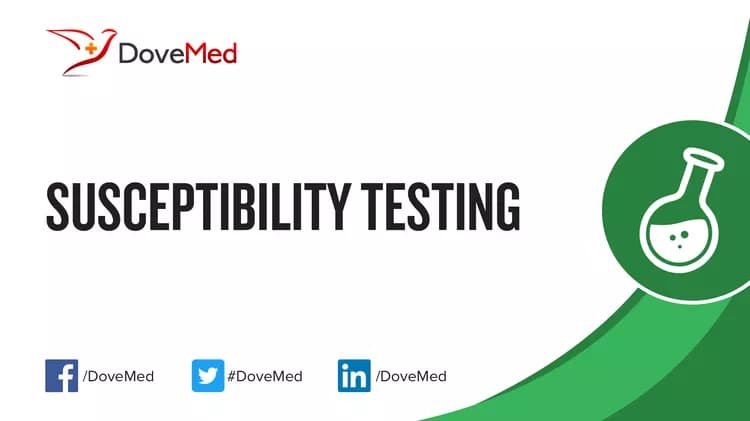What are the other Names for this Test? (Equivalent Terms)
- Antimicrobial Susceptibility Testing
- Bacterial and Fungal Susceptibility Testing
- Sensitivity Testing
What is Susceptibility Testing? (Background Information)
- Susceptibility Testing is carried out mainly in the setting of bacterial or sometimes fungal infections, to find the best antibiotic for treatment
- The test is conducted on a sample of pathogens (the disease-causing organism) isolated in a culture
- A culture is a sample of blood/fluid/pus, obtained from the suspected site of infection, which is transferred onto a medium of nutrients, to help the pathogens grow. The organisms that grow are then isolated, based on specific characteristics and the possible cause of infection is determined
- The antimicrobial that inhibits the growth of the organism in culture is the ideal antibiotic to control infection in an individual. This is determined, when the pathogen causing the infection is known to have unpredictable response to antibiotic treatment, or when the response to treatment is not favorable and drug resistance is suspected
What are the Clinical Indications for performing the Susceptibility Testing?
Susceptibility Testing is not ordered routinely with culture from suspected site of infection. Indications for Susceptibility Testing are:
- The isolated pathogen is known to have resistance to commonly used antibiotics, or if the response to antibiotic is expected to be questionable. For example, in the case of infections with Staphylococcus aureus, Susceptibility Testing is necessary to find out, if the organism is resistant to antibiotic methicillin, or not
- When the infection is not responding to treatment, to find out, if the pathogen has developed resistance to the drug being used and, to choose an alternative drug
How is the Specimen Collected for Susceptibility Testing?
Sample required: Culture of pathogen (either bacteria or fungi) isolated from the site of infection.
Process: The growth of the microorganisms isolated in culture (a nutrient medium for microbes) is assessed in the presence of an antimicrobial drug, to find which drug inhibits proliferation (multiplication of the organism).
Preparation required: None
What is the Significance of the Susceptibility Testing Result?
The results of the Susceptibility Testing may be as follows:
- The pathogen can be reported as being susceptible to some antimicrobial drugs. This helps to guide in treatment. The test result may also report the minimum drug concentration that is effective against the organism (called minimum inhibitory concentration)
- The pathogen may be reported as having intermediate susceptibility to an antimicrobial drug. This means the drug may be effective at higher doses, or when used for a longer period of time
- The pathogen may be reported as being resistant to an antimicrobial drug. In such cases, the drug will not be considered for treatment
The laboratory test results are NOT to be interpreted as results of a "stand-alone" test. The test results have to be interpreted after correlating with suitable clinical findings and additional supplemental tests/information. Your healthcare providers will explain the meaning of your tests results, based on the overall clinical scenario.
Additional and Relevant Useful Information:
- The sample for Culture and Sensitivity Testing should ideally be collected before starting the individual on antibiotics for his/her infection
Certain medications that you may be currently taking may influence the outcome of the test. Hence, it is important to inform your healthcare provider, the complete list of medications (including any herbal supplements) you are currently taking. This will help the healthcare provider interpret your test results more accurately and avoid unnecessary chances of a misdiagnosis.
Related Articles
Test Your Knowledge
Asked by users
Related Centers
Related Specialties
Related Physicians
Related Procedures
Related Resources
Join DoveHubs
and connect with fellow professionals


0 Comments
Please log in to post a comment.